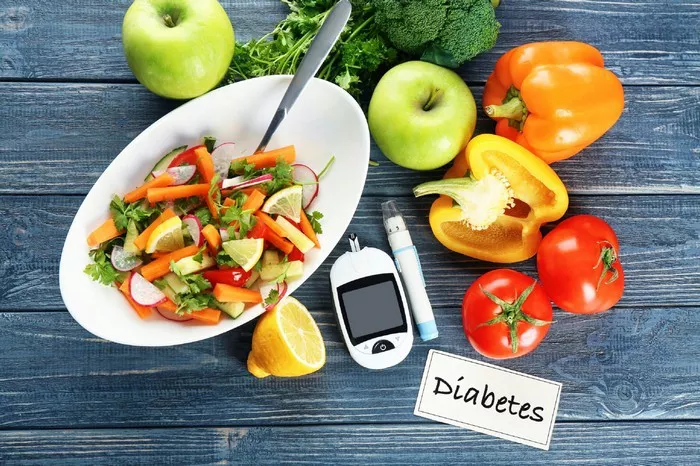Diabetes, particularly type 2 diabetes, has become a global health crisis affecting millions of people. While the condition is often perceived as chronic and irreversible, emerging evidence and clinical experience suggest that diabetes, especially in its early stages, can be managed effectively and even reversed. This article explores the comprehensive strategies that individuals can adopt to potentially reverse diabetes and regain optimal health.
Understanding Diabetes
Diabetes mellitus is a metabolic disorder characterized by high blood sugar levels over a prolonged period. The two primary types are type 1 diabetes, an autoimmune condition where the pancreas produces little to no insulin, and type 2 diabetes, where the body becomes resistant to insulin or fails to produce enough insulin. While type 1 diabetes is currently not reversible due to its autoimmune nature, type 2 diabetes, which accounts for the majority of diabetes cases, can be managed and potentially reversed through lifestyle changes, medication, and other interventions.
The Role of Insulin and Blood Sugar Regulation
Insulin, a hormone produced by the pancreas, plays a crucial role in regulating blood sugar levels. In type 2 diabetes, insulin resistance leads to elevated blood sugar levels, which over time can cause serious health complications such as heart disease, nerve damage, kidney failure, and vision problems. Therefore, managing blood sugar levels is vital for individuals with diabetes.
Key Strategies to Reverse Type 2 Diabetes
Adopting a Healthy Diet
A balanced and nutritious diet is the cornerstone of diabetes management. Here are key dietary principles:
- Low-Carbohydrate Diet: Reducing carbohydrate intake can significantly lower blood sugar levels. Diets such as the ketogenic diet, which is high in fats and low in carbohydrates, have shown promising results in improving insulin sensitivity and reducing blood glucose levels.
- High-Fiber Foods: Consuming foods high in fiber, such as vegetables, fruits, legumes, and whole grains, can help control blood sugar levels by slowing the absorption of sugar into the bloodstream.
- Healthy Fats: Incorporating healthy fats from sources like avocados, nuts, seeds, and olive oil can improve insulin sensitivity and provide a stable source of energy.
- Lean Proteins: Proteins from sources such as fish, poultry, tofu, and legumes can help maintain muscle mass and support metabolic health.
Regular Physical Activity
Exercise is a powerful tool for reversing diabetes. Regular physical activity helps improve insulin sensitivity, reduce blood sugar levels, and maintain a healthy weight. Here are some recommended types of exercise:
- Aerobic Exercise: Activities such as walking, jogging, swimming, and cycling can help lower blood sugar levels and improve cardiovascular health.
- Strength Training: Resistance exercises, including weightlifting and body-weight exercises, can increase muscle mass, which in turn improves insulin sensitivity.
- Flexibility and Balance Exercises: Practices like yoga and tai chi can enhance overall physical health and reduce stress, which is beneficial for diabetes management.
Weight Management
Achieving and maintaining a healthy weight is crucial for reversing type 2 diabetes. Excess body fat, particularly around the abdomen, is linked to insulin resistance. Strategies for weight management include:
- Caloric Reduction: Consuming fewer calories can lead to weight loss and improved blood sugar control.
- Portion Control: Managing portion sizes can prevent overeating and help in maintaining a healthy weight.
- Mindful Eating: Paying attention to hunger and fullness cues can prevent overeating and promote healthier eating habits.
Regular Monitoring of Blood Sugar Levels
Frequent monitoring of blood sugar levels can help individuals understand how different foods, activities, and medications affect their blood sugar. This information is vital for making informed decisions about diet, exercise, and medication.
Medications and Medical Interventions
In some cases, medications may be necessary to manage blood sugar levels. Common medications for type 2 diabetes include:
- Metformin: This medication helps reduce glucose production in the liver and improves insulin sensitivity.
- Sulfonylureas: These drugs stimulate the pancreas to produce more insulin.
- GLP-1 Receptor Agonists: These medications enhance insulin secretion and reduce glucose production.
- SGLT2 Inhibitors: These drugs help the kidneys remove excess glucose from the body through urine.
Bariatric surgery is another option for individuals with severe obesity and type 2 diabetes. This surgery can lead to significant weight loss and improve blood sugar levels.
Stress Management
Chronic stress can negatively impact blood sugar levels by increasing the production of cortisol, a hormone that raises blood sugar. Effective stress management techniques include:
- Mindfulness Meditation: Practicing mindfulness can reduce stress and improve overall well-being.
- Deep Breathing Exercises: These can help lower stress and improve blood sugar control.
- Physical Activity: Regular exercise is an excellent way to reduce stress and improve mood.
Adequate Sleep
Poor sleep can affect blood sugar levels and insulin sensitivity. Aim for 7-9 hours of quality sleep per night by:
- Maintaining a Regular Sleep Schedule: Go to bed and wake up at the same time every day.
- Creating a Relaxing Bedtime Routine: Engage in calming activities before bed, such as reading or taking a warm bath.
- Avoiding Screen Time Before Bed: Reduce exposure to blue light from screens to improve sleep quality.
Emerging Therapies and Future Directions
Research into new therapies for diabetes is ongoing, with several promising avenues:
- Gut Microbiome: Studies suggest that the gut microbiome plays a role in metabolic health. Probiotics and prebiotics may improve insulin sensitivity and blood sugar control.
- Intermittent Fasting: This eating pattern involves alternating periods of eating and fasting. Some studies indicate it can improve insulin sensitivity and aid in weight loss.
- Stem Cell Therapy: Research is exploring the potential of stem cells to regenerate insulin-producing cells in the pancreas.
See also:Organic Honey And Diabetes
Conclusion
Reversing type 2 diabetes is a multifaceted process that requires a comprehensive approach. By adopting a healthy diet, engaging in regular physical activity, managing weight, monitoring blood sugar levels, taking prescribed medications, managing stress, and ensuring adequate sleep, individuals can significantly improve their chances of reversing diabetes and achieving optimal health. Emerging therapies and ongoing research hold promise for even more effective strategies in the future. While the journey to reverse diabetes may be challenging, the potential for a healthier, more vibrant life makes it a worthy endeavor.
Related topics:
What Are The Different Types Of Insulin

























